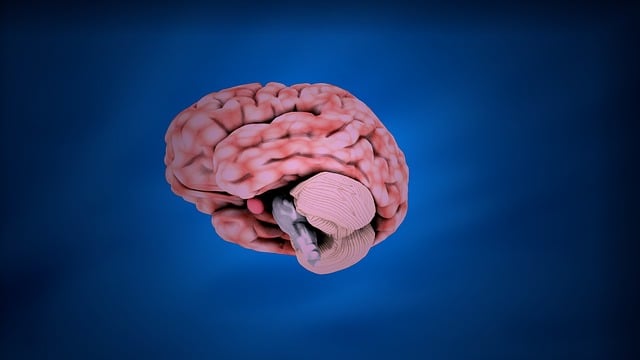Louisville's approach to chronic pain therapy integrates medical, psychological, and social aspects through nuanced risk assessment, cultural sensitivity, and proactive harm minimization planning. Effective communication, patient education, and active participation in care plans improve outcomes and quality of life. A comprehensive harm minimization strategy incorporates self-care, emotional regulation, and resilience-building, addressing immediate needs while empowering long-term pain management. Regular reassessments, mental health integration, and healthcare provider well-being are core tenets, ensuring exceptional Louisville Chronic Pain Therapy.
Louisville, known for its progressive healthcare approach, offers valuable insights into risk assessment and harm minimization planning for chronic pain therapy. This article explores a structured framework from a Louisville perspective, guiding practitioners through understanding risk assessment, identifying potential harms, developing comprehensive minimization strategies, patient education, informed consent, and regular review adjustments. By implementing these key components, healthcare providers can ensure long-term safety and optimal outcomes for patients undergoing chronic pain treatment in Louisville.
- Understanding Risk Assessment in Chronic Pain Therapy: A Louisville Perspective
- Identifying Potential Harms and Side Effects of Treatment
- Developing a Comprehensive Minimization Strategy
- Patient Education and Informed Consent: Key Components
- Regular Review and Adjustment: Ensuring Long-Term Safety
Understanding Risk Assessment in Chronic Pain Therapy: A Louisville Perspective

In Louisville, chronic pain therapy involves a nuanced approach that integrates medical, psychological, and social aspects to address complex patient needs. Risk assessment is a cornerstone of this process, focusing on identifying potential hazards and mitigating their impact to ensure patient safety and well-being. Here, healthcare professionals consider not only physiological risks but also the unique cultural and socioeconomic factors that can influence pain management outcomes. Cultural sensitivity in mental healthcare practice plays a vital role, as communication strategies tailored to individual patients can significantly reduce barriers associated with mental illness stigma reduction efforts.
Louisville’s perspective on risk assessment emphasizes proactive harm minimization planning. By anticipating potential challenges, from medication side effects to psychological coping mechanisms, care teams can develop comprehensive interventions that address these issues proactively. This strategy ensures that patients receive holistic support throughout their pain management journey, fostering better outcomes and improved quality of life. Effective communication remains key, with healthcare providers utilizing evidence-based techniques to foster open dialogue, educate patients, and empower them to actively participate in their care plans.
Identifying Potential Harms and Side Effects of Treatment

When considering Louisville chronic pain therapy, it’s crucial to have a comprehensive understanding of potential harms and side effects associated with various treatment approaches. The first step in risk assessment is identifying all possible outcomes, both positive and negative. This involves an in-depth review of the patient’s medical history, current medications, and any known allergies or sensitivities. Side effects can range from mild discomfort and temporary setbacks to more severe reactions that require immediate medical attention. For instance, some treatments might cause temporary anxiety or sleep disturbances, while others could lead to skin irritations or allergic responses.
Understanding these potential harms is not just about preparing for challenges but also about setting realistic expectations. It empowers both patients and healthcare providers to make informed decisions, ensuring the best possible outcome. Additionally, Louisville chronic pain therapy should incorporate self-care practices, emotional regulation techniques, and resilience-building strategies as part of a holistic harm minimization plan. These secondary approaches not only mitigate side effects but also enhance overall well-being, making the therapy journey more manageable for patients in the vibrant city of Louisville.
Developing a Comprehensive Minimization Strategy

Developing a comprehensive harm minimization strategy is a multifaceted process that forms a cornerstone of responsible Louisville Chronic Pain Therapy practices. It involves meticulously evaluating potential risks and implementing tailored interventions to ensure patient safety and well-being. This strategy encompasses not only identifying anticipated hazards but also fostering crisis intervention guidance and conflict resolution techniques within the therapeutic environment.
Effective harm minimization planning leverages inner strength development as a proactive measure, equipping individuals with the tools to navigate challenging situations. By integrating these strategies, Louisville Chronic Pain Therapy centers can create a supportive ecosystem that addresses immediate concerns while empowering patients to manage pain effectively in the long term.
Patient Education and Informed Consent: Key Components

Patient Education and Informed Consent are vital components of Louisville Chronic Pain Therapy. Educating patients about their condition, available treatment options, and potential risks is essential for empowering them to make informed decisions regarding their healthcare. This process fosters self-awareness exercises, encouraging individuals to actively participate in managing their chronic pain. By providing comprehensive information, healthcare professionals can ensure patients understand the implications of different therapies, fostering trust and promoting adherence to treatment plans.
Informed consent involves not only sharing details about procedures but also addressing concerns related to mental health. Mental Illness Stigma Reduction Efforts play a significant role in creating an inclusive environment where patients feel comfortable discussing their emotional well-being. Moreover, integrating Mental Health Policy Analysis and Advocacy into risk assessment ensures that healthcare systems are equipped to support patients’ mental health needs alongside physical treatment, ultimately contributing to better outcomes in Louisville Chronic Pain Therapy.
Regular Review and Adjustment: Ensuring Long-Term Safety

At Louisville Chronic Pain Therapy, we understand that managing chronic pain is an ongoing process that requires regular review and adjustment to ensure long-term safety. Our comprehensive harm minimization planning involves periodic reassessments of patient outcomes, medication efficacy, and potential adverse effects. This proactive approach allows us to adapt treatment strategies swiftly, addressing emerging challenges and incorporating new research insights into our practices.
Moreover, we emphasize the importance of burnout prevention strategies for healthcare providers as a critical component of our harm minimization plan. By fostering mental wellness through cultural competency training and supportive work environments, we maintain the highest standards of care. This holistic perspective not only safeguards patient safety but also ensures the well-being of our dedicated healthcare team, ultimately strengthening Louisville Chronic Pain Therapy’s commitment to exceptional chronic pain management.
In conclusion, effective risk assessment and harm minimization planning are indispensable components of Louisville chronic pain therapy. By understanding the unique risks associated with this field, identifying potential harms, and implementing comprehensive minimization strategies, healthcare providers can ensure patient safety and improve outcomes. Patient education and informed consent play a pivotal role in this process, empowering individuals to make informed decisions about their treatment. Regular review and adjustment of these plans are essential to accommodate evolving circumstances, ensuring long-term safety for all Louisville chronic pain therapy patients.










